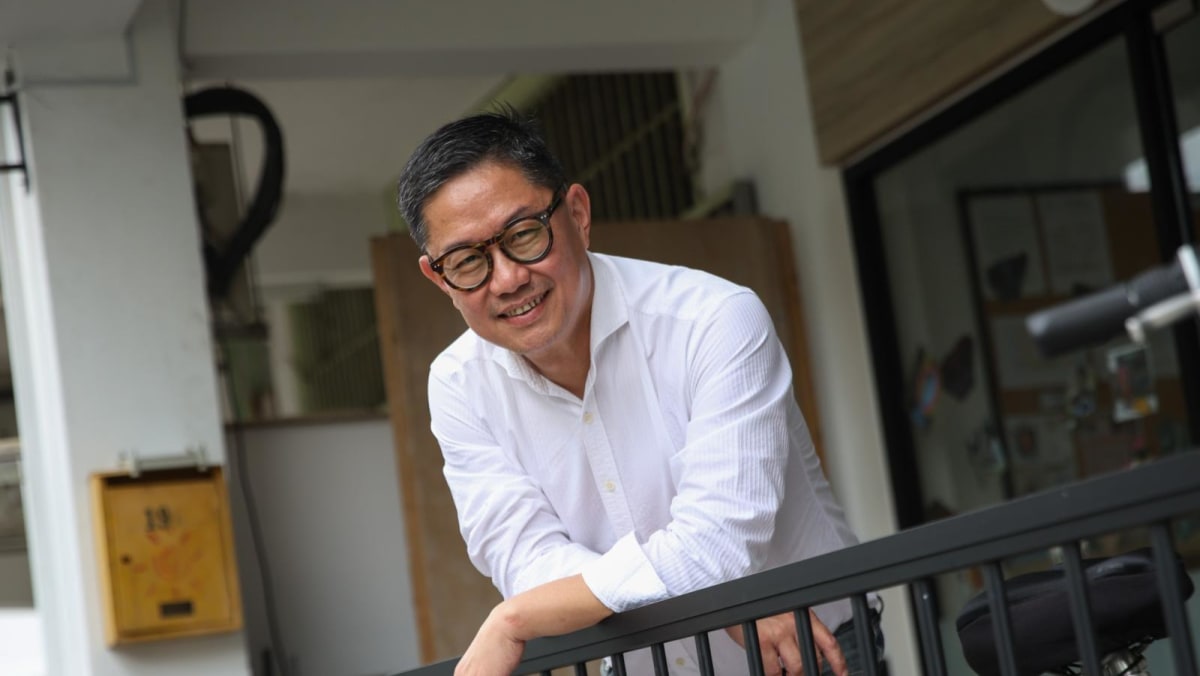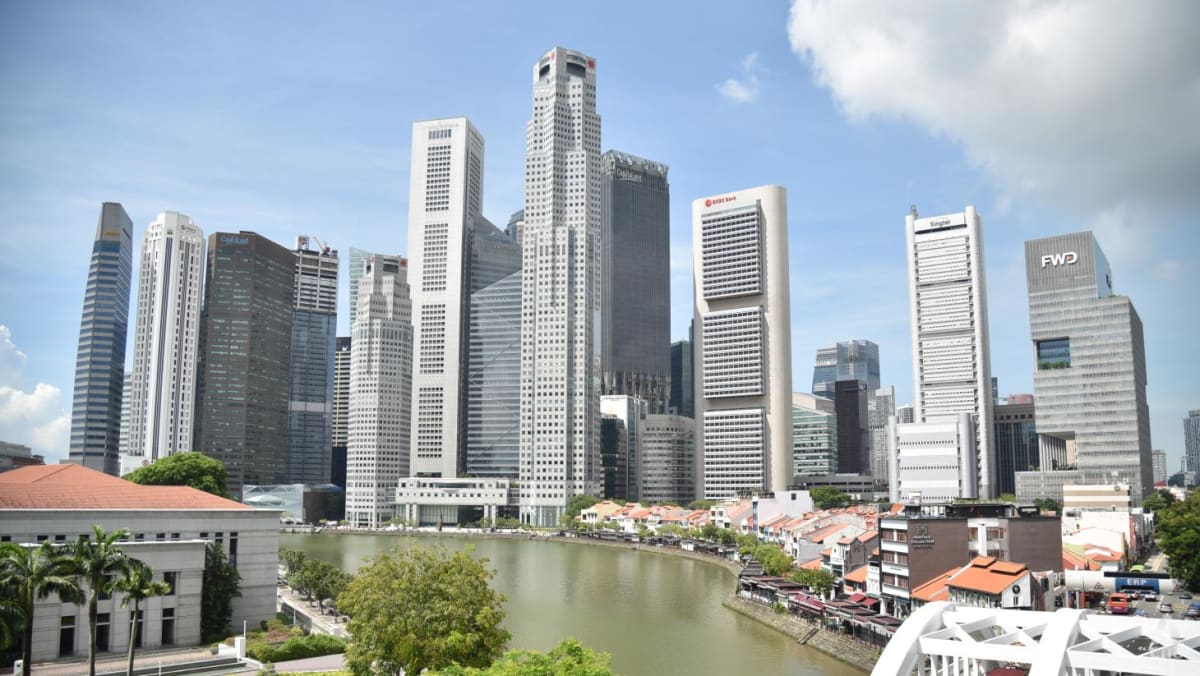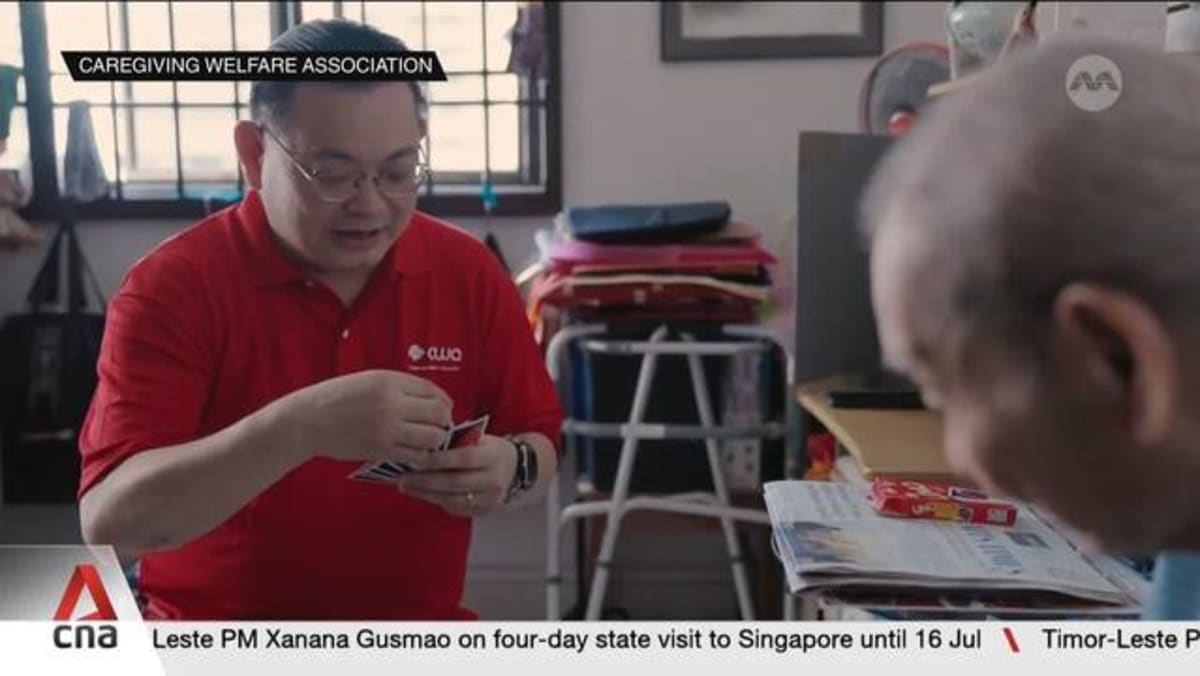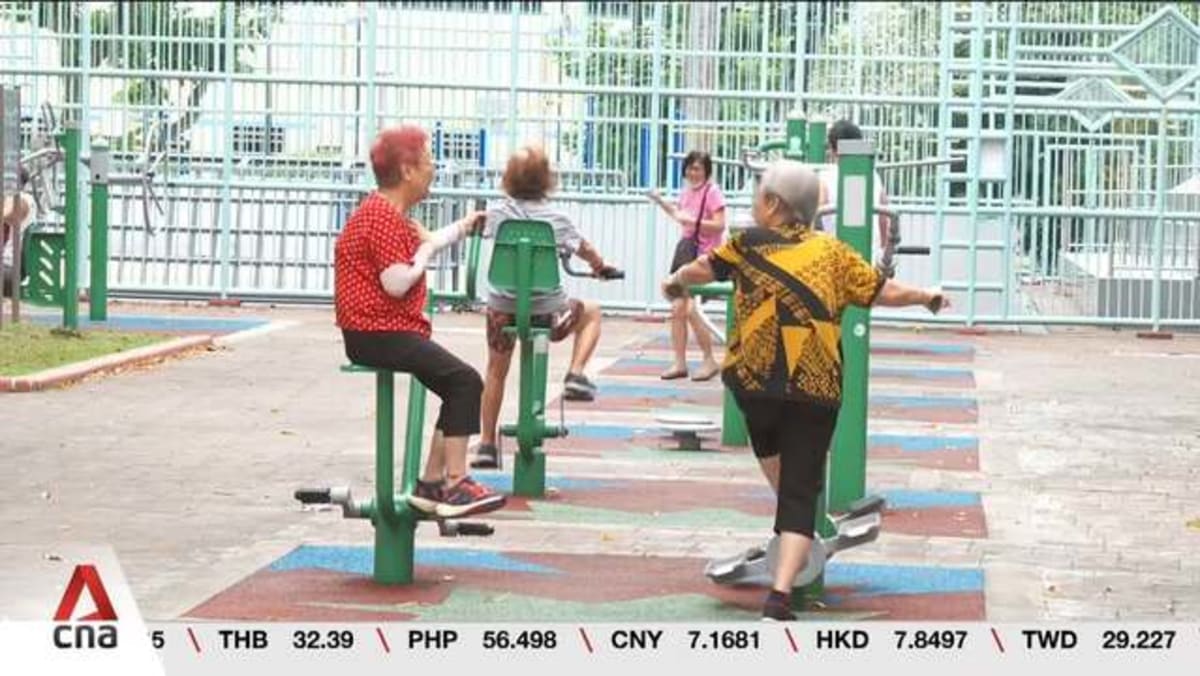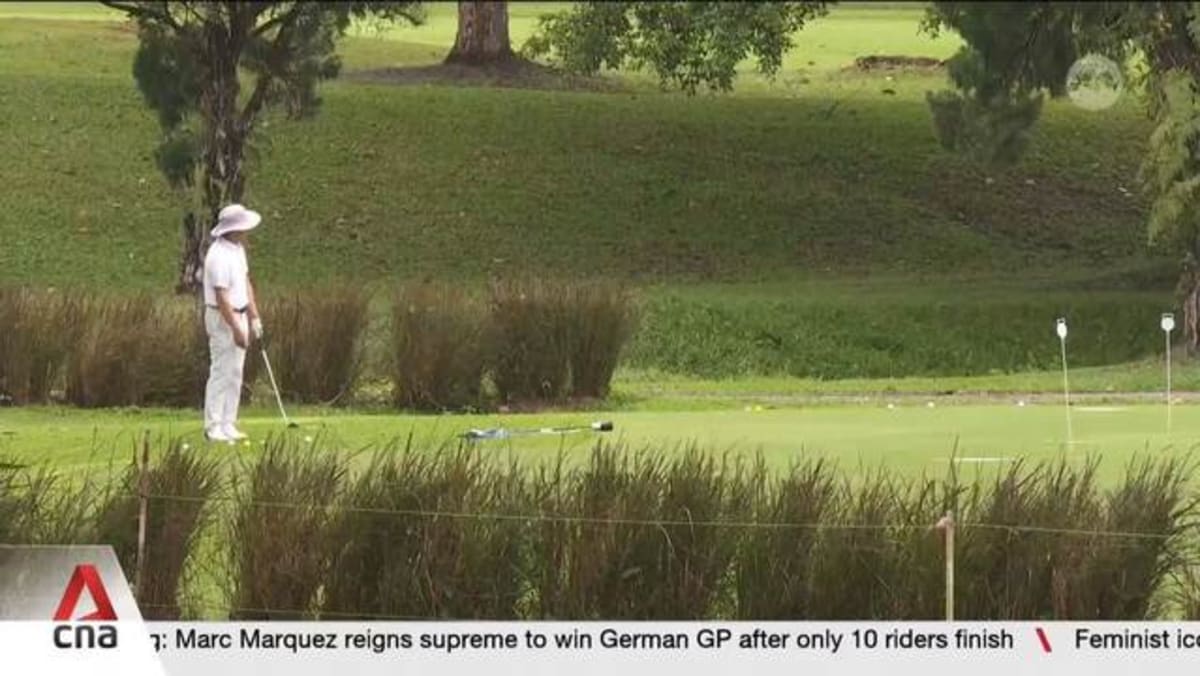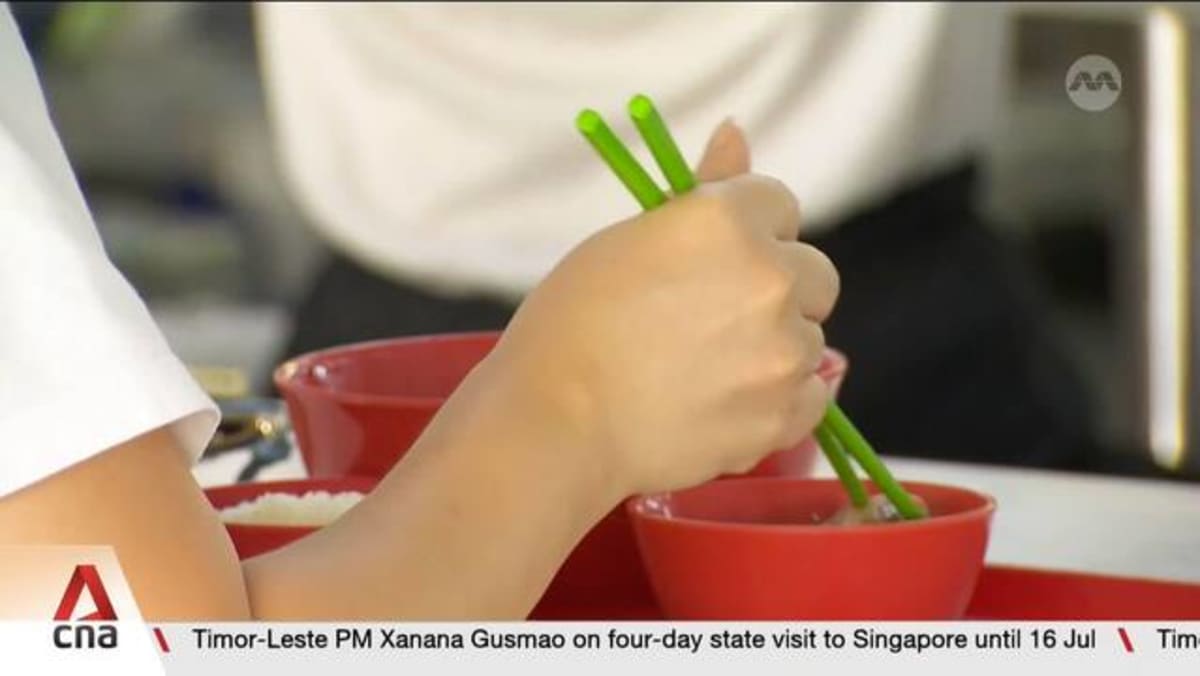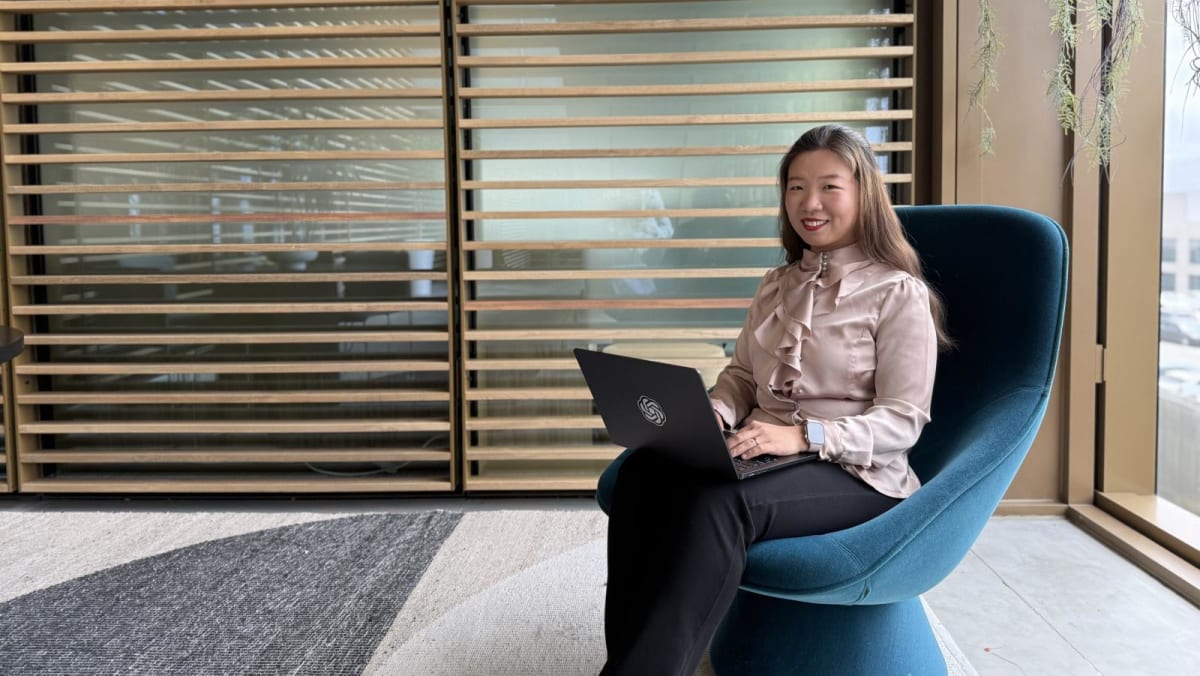Reflecting on his son’s concerns today, he said: “I think that I have to look at it from his perspective. This generation – including yourself – would you be able to, in a very sustainable way, afford public housing in Singapore?”
He also recalled how his son had a speech delay and largely remained silent even after turning two. It wasn’t until his younger sister began talking that Samuel, despite being two-and-a-half years older, started to speak as well.
That made Mr Pek realise that his son might be “slower in the learning spectrum” and also opened his eyes to the importance of special needs education.
When walking the ground in Tengah, where he has been active, Mr Pek said several young parents have also spoken to him about wanting more to be done in the area of special education.
“These are the feedback that I get from the residents. I will often share my own experiences with them. I will tell them, ‘just be patient’ and to continue to believe in their child, and not to give up.”
As for his daughter, Mr Pek said their shared interest in geopolitics and local politics has brought them closer over the years.
It was, in fact, one of those conversations that cemented his decision to step forward as a candidate.
Describing the talk as “extremely long and difficult”, Mr Pek looked visibly emotional and paused to compose himself before saying: “She’s very supportive and I think that she would be proud.
“To her, she has this understanding of me – that I will always walk that path less traveled, I will always do the more difficult things, and I’m not someone who will always just acquiesce just like that. I remember she said something like, ‘If you don’t do this, then who will?’”
CONSTRASTING POLICIES OVERSEAS AND IN SINGAPORE
Beyond ensuring affordable housing, implementing a universal minimum wage – a policy which he pointed out that PSP has also championed in its election manifesto – and advocating for the concerns of the sandwiched middle class are also causes close to Mr Pek’s heart.
Spending three years as SMF’s secretary-general – a role he held from 2020 to 2023 during the peak of the COVID-19 pandemic – showed him firsthand the “very difficult circumstances” faced by small and medium enterprises (SMEs) in Singapore.
The pandemic, he noted, had disrupted their supply chain ecosystem, placing pressures on cash flow, rental costs and production capacities.
“I know the voices of the SME owners, I know the pain they go through. Some of it is no fault of their own,” said Mr Pek.
To this end, he believes the government should provide an “important safety net” for workers, and that implementing a universal minimum wage would be a key step in doing so.
Prior to Mr Pek’s time at SMF, his career – including a 13-year-stint at Sony Electronics – took him to roles located across the globe. He lived in Dubai, Hong Kong and Shanghai, before returning to Singapore.
His work experience and time abroad have been pivotal in giving him international exposure and shaping his perspectives on policy and governance, said Mr Pek.
“You get to compare and contrast people, cities, policies across the globe, and I’m very blessed to have that opportunity to do so. I know what our government has done very well that is widely applied by other cities around the world.”
Mr Pek pointed to Singapore’s public housing scheme for example, which he said is “very admired worldwide” as it allows for home ownership of up to 80 per cent, if not more, albeit for just a 99-year lease.
Looking back on his time in Dubai, United Arab Emirates, Mr Pek also highlighted how it was only in the last 15 years or so that the country implemented a “limited version” of Singapore’s Mass Rapid Transit (MRT) network for its residents.
“But at the same time, I also know that, especially in the last 10 years, I think that our government has decided to shift their prerogative towards more of an economic growth slant.”
He believes the government has increasingly shifted its focus and policies towards economic growth, instead of what he described as a “more local-centric, social fabric resilience sort of narrative” – something he hopes to change if elected.
Since stepping down from his post at SMF, Mr Pek has turned his attention to his business in Shenzhen, China, which manufactures high-end security, surveillance and video conferencing cameras.
He is also currently facilitating the merger and acquisition of two Singaporean-owned factories – one in Bangkok, Thailand, and the other in Ho Chi Minh City, Vietnam – which are among opportunities that have arisen from his time at SMF.
Does he worry that joining an opposition party might dampen this, or affect his business standing and dealings?
Not at all, said Mr Pek, adding that there is generally no stigma against any opposition parties or its members anymore.
“I take comfort that I can work for myself, and as of now, I am very encouraged that my clients and people are very supportive of my campaign and the party that I’ve decided to join.”
He added that the manufacturing sector – much like other sectors – respects the knowledge and experience one brings instead, and that he has not had any issues with being associated with an opposition party, within his own ecosystem.
“I think that more and more credible people will join the opposition. I think it’s a matter of when, not if, that your opposition voices will really be heard in parliament.
“I’ll leave you with one thing: I’m not the first one to join the opposition with a credible background and really, I will not be the last.”





